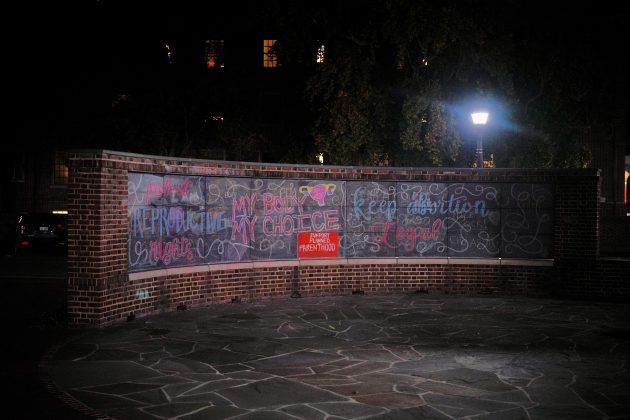There has clearly been a growing concern over free speech on this campus, as evidenced in part by the creation of a (not College-affiliated) publication claiming to espouse free speech while the comments on its page have to be approved before being visible on its website. Many students across the nation have actually voiced similar fears that their (usually more right-leaning) views are not being heard, but is this true?
Well, what actually is free speech? When people reference free speech or freedom of speech, they are usually referring to the First Amendment right to express ideas without the fear of government interference, including censorship, retaliation or legal repercussions. The vital word in this phrase is “government,” because freedom of speech does not equal freedom from social repercussions. Being heard and platformed is different from having free speech. To put it bluntly: while the government cannot silence you, your peers certainly can try.
This, of course, is an oversimplification. Over the past five years, a series of controversial speakers such as ex-Breitbart demagogue Milo Yiannopoulos and right-wing talking head Ann Coulter have had events canceled on college campuses due to widespread protest from students, which included chanting and even throwing objects during speeches. Essentially, students demonstrate how little they want these speakers at their universities. These situations are known as heckler’s vetoes, which are Constitutionally illegal if they occur at a public institution, because that counts as the government canceling a speaker due to their beliefs, therefore infringing upon the right of these people to speak freely without fear of retaliation.
However, there is a stark difference between these heckler’s vetoes and the institutional silencing of student voices. The heckler’s veto is a technicality on college campuses. If the exact same thing were to happen to Yiannopoulos at a private university, it would be completely legal — and completely rational. Heckler’s vetoes on campuses come directly from the demands of the students, the very people these institutions are supposed to serve. Additionally, in Yiannopoulos’ instance, the students are protesting his rampant use of hate speech. To be clear, I understand the gravity of any sort of infringement of free speech, and how every action could be a slippery slope to the suppression of the people. Still, the cancellation of a few speaking engagements pales in both magnitude and relevance when compared to the actual, genuine intervention of the government in regards to students’ rights.
I present a small fraction of an extensive history: When UC Berkeley prohibited political activities on and near campus amidst the civil rights movement and the ongoing Vietnam War, the Berkeley Free Speech Movement (FSM) was founded in order for students to be able to organize. After a non-violent protest with over 1,500 people, UC Berkeley got a new Chancellor who granted the demands of FSM. In 1969, when five students wore black armbands to school to protest the Vietnam War, the basis for the legendary Supreme Court case Tinker v. Des Moines was conceived. This case provided the “substantial disruption” test that is still used today and protected students’ rights to free speech as equal to teachers’. The next year, when people gathered to protest the same war on Kent State University’s grounds, the National Guard opened fire on students in what is now seen as one of the most atrocious massacres to happen on a campus. Nine students were injured. Four died.
Now, you may be wondering: why go on a tangent about heckler’s vetoes? Why does this matter? What does this have to do with the College? I want to make the distinction between social disapproval, suppression of free speech, and the nuances between the two. To students who feel as though their freedom of speech is under attack on this campus, I have to ask: Is the institution censoring your words? Do you have ideas that are actively being suppressed, or are they simply unpopular? Are you genuinely trying to advocate for free speech or are you trying to escape the social retribution you know you’ll inevitably receive? Freedom of speech is an incredibly important pillar of the Constitution, but college students need to be aware of when their rights are being taken away versus when their peers simply do not want to hear what they have to say.
Ezzie Seigel ‘23 is a self-designed Creative Writing major with a concentration in Foreign Languages. When not playing music on WCWM or dancing lindy-hop during non-Covid times, you can likely find them in the Meridian, hanging out with the omniscient Jane. Email Ezzie at enseigel@email.wm.edu.
Correction: a previous version of this article stated that the non-College affiliated publication in question used to approve comments before they were made visible on its website, implying that this was no longer the case. This has been amended to reflect the publication’s continued policy regarding monitoring of comments as of March 22, 2021.
Correction: a previous version of the article stated that hate speech is not constitutionally protected. This is only true if it threatens violence or is a direct, personal threat.

